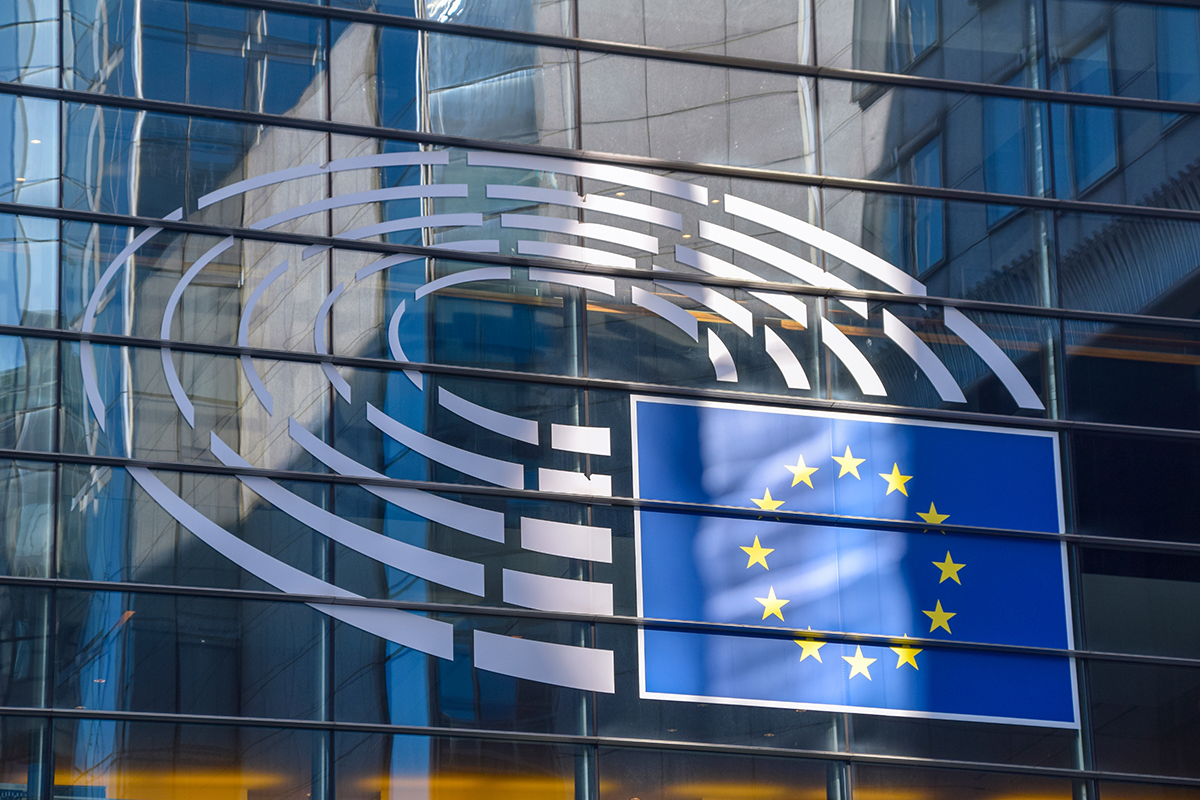
More than 100 recycling stakeholders urged the European Commission to address unfavorable market economics, a scenario that provides foresight into what may occur in North America. | NGCHIYUI / Shutterstock
More than 100 recyclers issued a call, coordinated by a Dutch consultancy, for the European Commission to take immediate action in addressing the causes of the current industry crisis – itself a window into what may await the North American recycling sector.
Coordinated by Netherlands-based Searious Business, the statement notes that the European plastics recycling industry “is at a critical breaking point,” despite €5 billion ($5.8 billion) in investments from 2020 to 2023 and 12.5 million metric tons of installed capacity. As in the United States, EU recyclers are experiencing low demand for recycled plastics amid cheap virgin resin and “insufficient regulatory incentives for the use of recycled materials.”
Among the actions the signatories asked policy makers to take are to strengthen extended producer responsibility (EPR) mechanisms to ensure profitability of recycled materials and encourage investment, and to enhance import standards and certification schemes for all recycled plastics entering the EU.
In addition, the statement urges plastics stakeholders to prioritize recycled plastics in their products to drive demand, and to collaborate across the value chain to innovate and integrate recycled content.
The statement is part of the Searious Business campaign called the “Elephant in the Room” seeks to “stop ignoring the obvious”: that recyclability alone cannot address the broader challenges associated with plastic waste. Signatories of the statement include equipment manufacturers such as Erema and TOMRA; recyclers Veolia Polymers and ReValyu; Gemini, parent company of Sigma Recycling; and chemical technology firm BUSS ChemTech.
“Recyclers cannot afford to wait for policy timelines — they need action now,” said Willemijn Peeters, CEO of Searious Business, in a press release. “Without consistent demand and fair market conditions, Europe’s recycling base will collapse — and with it, the foundation of a circular economy.”
Parallels in North America
In North America, recyclers are experiencing the same issues that have resulted in the closure of more than a dozen plastics recycling facilities across Western Europe over the past three years, said Steve Alexander, CEO of the US-based Association of Plastic Recyclers.
Last month, WM closed its Texas film-recycling operations. And in September, RPET company rPlanet Earth shut down, mirroring the accelerating plant-closure landscape in the EU.
“Unless there’s a strong demand component by consumer brands using the domestically produced material, there’s not going to be a market for all this material that EPR is supposed to generate,” he said.
APR owns Resource Recycling, Inc., publisher of Plastics Recycling Update.
Among the mechanisms APR supports are incentives for both recycled plastic manufacturers and brand companies incorporating PCR into their products and packaging design. For example, following the announcement of French incentives to encourage the use of recycled content, recycling technology company Carbios decided to restart work on its new plant.
In North America, APR recently relaunched its Recycling Demand Champions Program, supported by The Recycling Partnership, to recognize companies committed to the long-term use of domestic PCR.
APR recently recognized Amcor, Charter Next Generation, Kraft Heinz, Novolex and Triton Group for their leadership in the use of domestic PCR, helping to strengthen the North American circular economy.
Alexander added that while APR can provide technical solutions to make a package or a product recyclable, “if there’s not a market, why are you developing your product?”
“Unless there are changes, it would be very difficult to see how we’re not going to be in the same position as Europe and and elsewhere throughout the globe,” Alexander said.
More stories about EPR/stewardship

